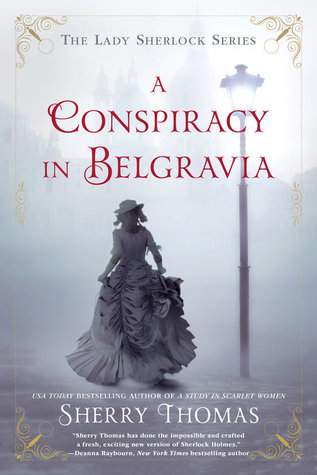 A Conspiracy in Belgravia (Lady Sherlock, #2) by Sherry Thomas
A Conspiracy in Belgravia (Lady Sherlock, #2) by Sherry Thomas Formats available: paperback, ebook, audiobook
Series: Lady Sherlock #2
Pages: 336
Published by Berkley Books on September 5th 2017
Purchasing Info: Author's Website, Publisher's Website, Amazon, Barnes & Noble, Kobo, Bookshop.org
Goodreads
The game is afoot as Charlotte Holmes returns in the atmospheric second novel in New York Times bestseller Sherry Thomas's Victorian-set Lady Sherlock series.
Being shunned by Society gives Charlotte Holmes the time and freedom to put her extraordinary powers of deduction to good use. As “Sherlock Holmes, consulting detective,” aided by the capable Mrs. Watson, she’s had great success helping with all manner of inquiries, but she’s not prepared for the new client who arrives at her Upper Baker Street office.
Lady Ingram, wife of Charlotte’s dear friend and benefactor, wants Sherlock Holmes to find her first love, who failed to show up at their annual rendezvous. Matters of loyalty and discretion aside, the case becomes even more personal for Charlotte as the missing man is none other than Myron Finch, her illegitimate half brother.
In the meanwhile, Charlotte wrestles with a surprising proposal of marriage, a mysterious stranger woos her sister Livia, and an unidentified body that surfaces where least expected. Charlotte’s investigative prowess is challenged as never before: Can she find her brother in time—or will he, too, end up as a nameless corpse somewhere in the belly of London?
My Review:
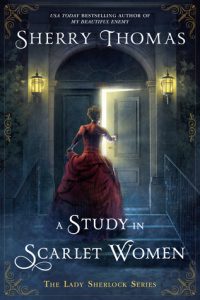 I actually read this book a couple of weeks ago, when the Sherlock Holmes book I was planning to read kind of fell through, but I still had a taste for Holmes. So I dove through the towering TBR pile and emerged with A Conspiracy in Belgravia, the second Lady Sherlock book after last fall’s fascinating A Study in Scarlet Women.
I actually read this book a couple of weeks ago, when the Sherlock Holmes book I was planning to read kind of fell through, but I still had a taste for Holmes. So I dove through the towering TBR pile and emerged with A Conspiracy in Belgravia, the second Lady Sherlock book after last fall’s fascinating A Study in Scarlet Women.
While I am familiar enough with the Holmes canon to play spot the analog between a pastiche series like Lady Sherlock and the original, I certainly don’t have it memorized. So as obvious as it was that A Study in Scarlet Women was a play on the first Holmes story, A Study in Scarlet, the derivation of the title of A Conspiracy in Belgravia was much less obvious. As much as it sounds to the ear like A Scandal in Bohemia, the stories are not related. Although, now that I think about it, A Conspiracy in Belgravia does contain hints of The Adventure of the Bruce-Partington Plans.
So a puzzle for another time. Meanwhile, we have the conundrums that Charlotte Holmes and her associates have run across within the rather tony and well-to-do precincts of Belgravia. And, while Charlotte investigates not one but two separate mysteries, she is also mulling over a tempting marriage proposal from Lord Bancroft. The proposal is not tempting because of the man himself, but rather for the sheer number of problems that marriage to him will solve.
None of which resolve the largest dilemma that this proposal creates – that Charlotte Holmes is in love, if that phrase can be used for someone who is usually much more brain than emotion, with the man’s brother Lord Ingram. To add to the difficulties involved, Lord Ingram finally figured out that he is in love with Charlotte. Unfortunately for both of them, this discovery occurred well after his marriage to someone else. That it has become obvious over time that Lady Ingram only married him for his money makes the situation all that much more melodramatic and tragic.
Especially when Lady Ingram calls upon “Sherlock Holmes” so that the detective may discover the whereabouts of her former lover – a man who also happens to be Charlotte Holmes’ illegitimate half-brother.
When the puzzles that Lord Bancroft (who is definitely the analog to Mycroft in this pastiche) run into Charlotte’s commission from Lady Ingram, the intertwining conundrums begin to test even the mettle of Sherlock Holmes. Can she remain free, save her sisters and get to the bottom of all the conspiracies before it is too late?
Only Sherlock Holmes has the capacity to reveal the depths of this conspiracy. But can she? And, in the end, should she?
Escape Rating B: I’m a bit on the fence about this one, and for some of the same issues that were raised by the first book, A Study in Scarlet Women. One of the issues with historical fiction is where the author draws the line between making the female protagonist relatable to a 21st century reader and making sure that the character fits plausibly within her time period. If she’s not relatable enough, readers lose interest. If she’s too much a part of her time, the odds are unfortunately all too likely that her activities will be too restricted to make her the heroine of her own story.
With a Holmes pastiche, even one that plays as much havoc with the original characters as this one, taking Holmes too far away from the character we know and love, creates a third crevasse into which the story can fall.
One of the things that the author has done with this series has been to make Charlotte an unconventional creature of her times. While she may have a singular genius, the world treats her the way all women are treated – her movements are often restricted, she must hide behind her fictitious brother, the police inspector she assists resents her assistance because she is a woman, and her parents have the right to kidnap her off the streets, while the establishment will consider that a job well done.
The dilemma of Lord Bancroft’s marriage proposal is very real. She would regain respectability, her parents would leave her alone, and she can rescue both of her sisters, who very much do need rescuing. But marriage would give Lord Bancroft the right to control her movements and her activities. He has already said that he would not allow her to continue practicing as Sherlock Holmes. While his position as this world’s Mycroft means that he does have fascinating puzzles for her to solve, she knows that marriage sacrifices her happiness and merely her right to be her own person and make her own decisions for a safety that can be restricted or removed at any turn.
Charlotte’s relationship with Lord Ingram also gives me pause. With the notable exception of Laurie R. King’s utterly marvelous Holmes/Russell series, Holmes’ name and the word romance are seldom mentioned in the same breath. Or even in the same paragraph. For someone who so singularly knows her own mind, and gives it precedence over every other facet of her existence, Charlotte’s confused feelings about Lord Ingram don’t quite ring true for Charlotte as Holmes. If it is an attempt to make her seem, at least in this one aspect, more typically feminine, it falls a bit flat for this reader.
None of the above is to say that I did not enjoy A Conspiracy in Belgravia and this alternate vision of Sherlock Holmes, because the intricacies of the mystery were quite entertaining. The revelation of the mastermind behind events was both a surprise and not, as this personage could be expected to appear in some form in this series. But the way that events maneuvered around to the revelation were a pleasant surprise for the reader, and an unpleasant surprise for the characters.
As it should be.







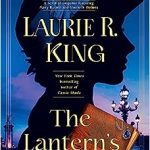
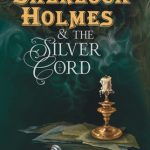



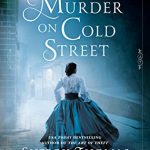
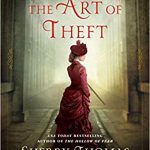








Huh, I hadn’t heard of this or the first book before, and my curiosity is definitely piqued! Thanks for your review.
The first book is a very interesting twist on Holmes. if you like Holmes-derivations, it’s fun.
Marlene Harris recently posted..Review: Glass Houses by Louise Penny